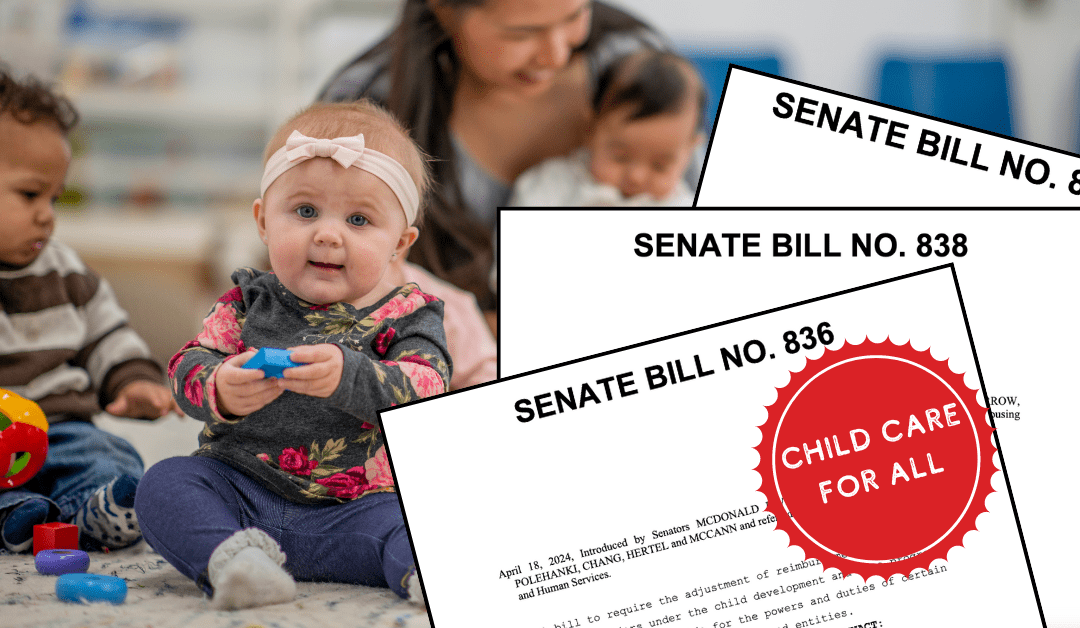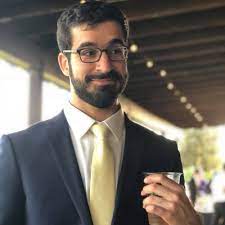
“Whenever you take something out of a community, communities always suffer, no matter what it is,” said 16-year-old Lionel Baldwin. “You put IN to a community for it to thrive.”
Public education is at a crossroads. Over the past two years, our schools and the rules that guide them have become the center of heated–and at times, ugly–debates over what public education is and should be. The loudest adults have sucked up the most oxygen during those debates, frequently distracting from other, serious issues facing the very population that schools are supposed to be centered around: the students.
This week, we’re hoping to help remedy that—at least a little. As part of our ongoing series of Q&As with Michiganders, we interviewed brothers Lionel and Michael Baldwin, students at Arthur Hill High School in Saginaw, and their mother, Arshen Baldwin, a teacher at Arthur Hill.
This interview has been edited for clarity and brevity.
What has your experience been like as public school students?
Lionel: As a public school student, you kind of get a little more of what I would call the real world. It’s not all peaches and cream and you have to learn how the real world is going to treat you and what you have to do to get by and be successful.
Michael: In public schools, socially, you get a lot of different interactions with a lot of different people and that really just teaches you how to compose yourself as a person and shows you who you are, the route you want to go, and a lot of different things about yourself.
What’s important for you guys regarding your education?
Lionel: Truthfully, the only thing that is important to me when I wake up in the morning and get ready for school is knowing that we can’t afford college. I want to be a lawyer and you’ve got to go to college to be a lawyer, so whatever I can do that day to allow me to make college free is what I’m going to try to do and do to the best of my abilities.
What role do public schools play in your community?
Arshen: I would say that for many in our community, the school is somewhat of a safe haven. The school that we’re at is about 90% low-socioeconomic status students, and so for many of them, it’s a place to go and be safe, have access to food and maybe some things that some of our students don’t get at home. We have counselors and social workers that provide resources and support to our students, so some of our students have been to those different resources that the school offers because we are a low-SES school.
Lionel: I also think public schools are an outlet for kids who don’t really do much at home…For some kids, it’s about, ‘okay well if I don’t go to school, I’m going to be at home for 24 hours,’ and through COVID, domestic violence increased a lot. So maybe it’s just being away from domestic violence. Sometimes, as sad as it may seem, kids are only eating here, so that may be their way to eat or drink or just socialize in general instead of being at home and doing whatever they’re doing at home.
Michael: It’s like a simulation of life outside of school, learning how to be able to treat others, learning how to deal with others. You have to make sure to get all your work done, you have to make sure you’re on top of your stuff, just like the outside world.
Over the last year and a half, there’s been a lot of criticism of public schools and scrutiny of teachers, specifically relating to Critical Race Theory, talk of sexual identity and gender orientation, and a push to ban books. Do these recent controversies and criticisms worry you?
Arshen: The moment we start to censor things, it doesn’t look like what the real world looks like, because out in the real world, you have different identities, you have issues related to race, you have access to books. I think the moment that we start to shield our students from the world is the moment that we set them up for failure. I think it’s important that students get real-life experience. Public schools are extremely diverse—they should be anyway. They’re a bit more diverse not in terms of ethnicities, but socio-economic status and different things like that. I think when you get into privatization, they have a little more control over who they allow to come in and the world isn’t like that. You don’t live in a bubble and public education allows us to see the whole picture as opposed to a bubble.
There’s also an effort in Michigan to pass an initiative that would effectively use $500 million in public money to subsidize the cost of private school tuition for students. Are you worried about efforts that would take public funding and give it to private schools?
Arshen: Absolutely. I believe that we’re already underfunded. We don’t have all that we need to truly maximize our educational efforts here, and if you pull that money away so that parents can send their kids to private schools, or who are already in private schools and give them money that truly should be here benefiting students that need it the most, it creates an issue. I’m not in agreement with taking money from public education for privatization reasons. If they want to go to private schools, then they should pay for them.
What would you want adults or politicians or people who are in charge of these sorts of decisions about schools to know? What do they get wrong?
Lionel: I think sometimes, they think that taking something away is going to solve the problem.… Instead of defunding schools, they should be funding the schools even more. I’m fortunate enough where I can just come to school and worry about my grades and anything else that I choose to worry about is self-inflicted, but other kids, they’re worrying about, ‘What am I going to eat tomorrow? Are we going to have lice? Am I going to be able to take a shower so I don’t get talked about at school?’
Michael: I think it’s pretty important to get the perspective and input from the kids themselves, ‘cause that’s who it’s affecting.
Do you think communities would suffer if public schools didn’t exist? If so, how?
Lionel: Whenever you take something out of a community, communities always suffer no matter what it is. You take a community gym out, a community pool out, whatever you take out of the community, it’s always going to suffer. You put IN to a community for it to thrive.
Arshen: There’s always a trickle effect, so what we notice is that in our neighborhoods where [schools have been closed] we had a lot of people start to move away from those areas, we started getting a lot of blight. People look at [living] where the schools are, so when you start shutting down schools and removing schools then it greatly affects families and the growth of a community. Public education and our neighborhood schools are extremely important to the betterment of our community.
What is a positive vision for the future of public schools in your community? What do you want to see happen?
Arshen: I know one thing we’re doing here is our district just did a millage and they are building a new school [building], which is long overdue. The school we are in is so disgusting, the janitors do the best they can—and they don’t have many janitors first of all, so we’re short staffed—but the building is so old and disgusting, it’s amazing that kids show up here every day. We have floors that are buckling. Sometimes our heating system works, sometimes it overworks, sometimes it doesn’t work. I really like that our district is building a new school for us… I’m really grateful that our district and our superintendent started that process. I think in the next year or two, we should get our new building which is going to be really nice to have bright lights and a really nice facility. getting more resources into the school to meet the needs of all of our students—I’m looking forward to that day.
Is there anything else I haven’t asked that you think is important to know or you want to share?
Lionel: Saginaw has become a very small place. Not because there aren’t people going to our schools, but because people are leaving our schools, because like my mom said, we don’t have the basic necessities that you’d want in your home.
In your home, you’d want your floors not to be coming up. You wouldn’t want your floors to be bending. You’d want heat, you’d want A/C. You wouldn’t want one day your heat is on 90 and then another day it’s not working. You wouldn’t want water fountains that don’t work or that aren’t turned on most of the time–so people tend to leave. We have a lot of schools of choice which have the basic necessities that our school doesn’t have, so why not go there when you can send your kid to a better environment? I think that’s the main reason we can’t keep kids in our district, because we’re just not getting the basic necessities in our school, which is why we need to be funded more than we are right now.
Editor’s Note: In Michigan, Schools of Choice programs offer students and their families the chance to decide which school in their district they want to attend, and also allow non-resident students to apply for the chance to enroll in a district other than their own. The level of participation and program details are determined at the local level.
For example, the Baldwins attend Arthur Hill High School, which is located in the city of Saginaw. Students from their school can opt to apply for “school of choice” programs, including those in nearby Saginaw Township, Frankenmuth, Carrollton, and Hemlock. Lionel specifically cited Heritage High School in Saginaw Township and Carrollton High school as two schools of choice that students go to.
Qualifications and requirements vary based on school district, but for example, to participate in Saginaw Township’s limited program, the student must live within Saginaw County Intermediate School District boundaries. Both parents must reside outside of Saginaw Township, even if only one parent has custody of the student.
The program is open to K-6 students, gifted and talented K-5 students, and 10th, 11th, and 12th grade students who qualify for enrollment in Advanced Placement courses or Great Lakes Bay Early College. Enrollment in the program is limited and based on space availability at each grade and each school and is not guaranteed. Public transportation is also not provided, and parents are expected to drop off and pick up their children.
Politics

SEIU workers ahead of NFL Draft: We are ‘the backbone of Detroit’
BY KEN COLEMAN, MICHIGAN ADVANCE MICHIGAN—A day ahead of the National Football League annual draft being held in Detroit, Service Employees...

Investigator says Trump, allies were uncharged co-conspirators in plot to overturn Michigan election
DETROIT—A state investigator testified Wednesday that he considers former President Donald Trump and his White House chief of staff to be uncharged...

Michigan Dems introduce ‘Child Care for All’ legislation to lower costs for families
Lawmakers say Michigan is facing a ‘child care crisis.’ But a series of bills introduced this month would help to make child care (much) more...
Local News

The 10 best burger joints in and around Lansing
Warning: Do not read this list if you missed lunch or you will find yourself hopping in the car to drive to these best burger joints in Lansing. ...

10 unique wedding venues in Michigan to suit every kind of couple
From a distillery in Detroit to a summer camp, we’ve rounded up some of Michigan’s most unique wedding venues. Of all the elements you need to...






